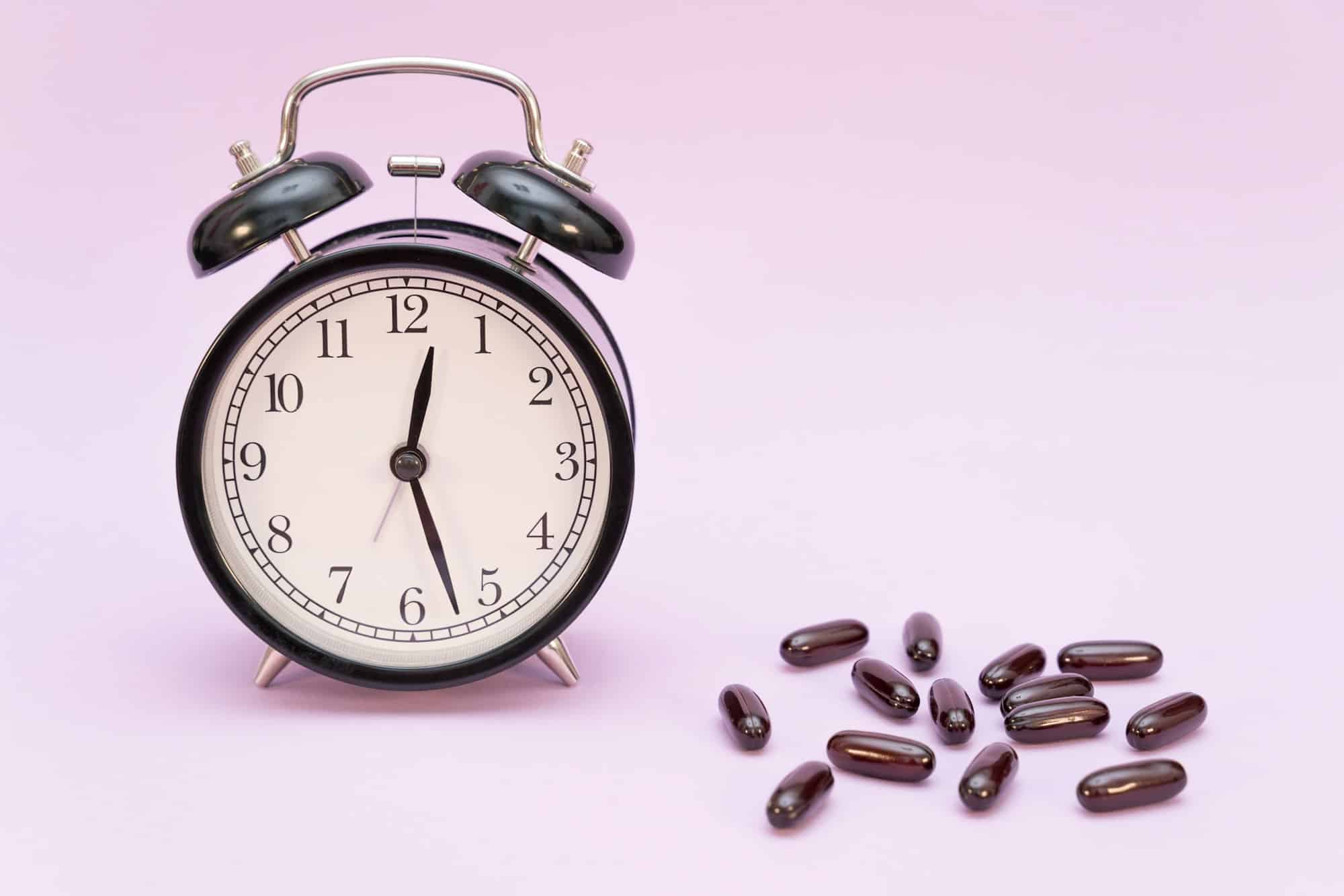How Can Melatonin Supplements Improve Sleep Quality for Night Shift Workers?

The human body operates on a circadian rhythm, often referred to as the "body clock." This regulates numerous physiological processes, including the sleep-wake cycle. However, for people who work night shifts, this rhythm can become disrupted, leading to a disorder known as Shift Work Sleep Disorder (SWSD). If you are among the millions of night shift workers worldwide, you may experience symptoms like insomnia, excessive sleepiness, and reduced concentration. But, have you ever wondered if melatonin supplements can be of assistance?
Understanding the Impact of Shift Work on Your Sleep
Shift work, particularly night shifts, can significantly interfere with the body’s natural circadian rhythm. The body’s internal clock is designed to align with daytime activity and nighttime rest. When this pattern is disrupted, as in shift work, it can result in a number of health effects and reduced sleep quality.
Lire également : What Are the Leading Techniques for Oil Spill Cleanup Along UK’s Coastlines?
Melatonin, a hormone produced in the pineal gland in the brain, plays a critical role in regulating our circadian rhythm. It is often referred to as the "sleep hormone" as its levels in the body rise in the evening to promote sleep and decrease in the morning to promote wakefulness. However, for shift workers, exposure to light during the night can disrupt the production of melatonin, leading to difficulties in sleeping and waking.
Various studies have been conducted on this topic, with findings accessible on scholarly platforms like Google Scholar, Crossref and PubMed. These studies show a strong link between shift work, disrupted circadian rhythm, and diminished health and sleep quality.
Dans le meme genre : What Role Do Companion Robots Play in Elderly Care?
Melatonin Supplements: A Potential Solution
Melatonin supplements have become increasingly popular over the past few years. They are commonly used to treat jet lag or sleep problems caused by varying work schedules, like night shifts. Many shift workers resort to such supplements to help align their body clock with their work schedule and to improve the quality of their sleep.
Several researches, available on Google Scholar, PubMed, and Crossref, have been conducted to evaluate the effects of melatonin supplements on night shift workers. Many of these studies suggest that melatonin, when taken at the right time, can help shift the body clock and improve sleep quality.
By mimicking the body’s natural production of the hormone, melatonin supplements can help night shift workers fall asleep faster, stay asleep longer, and improve the overall quality of their sleep.
Maximizing the Benefits of Melatonin Supplements
To reap the maximum benefits from melatonin supplements, it is important to understand the right way to use them. The timing of the dosage plays a significant role. Typically, it is recommended that shift workers take the supplement right before their main sleep period, whether it is day or night.
Another crucial factor is the dosage. It’s important to take only the amount necessary to aid sleep. Typically, a low dose is all that’s needed to enhance sleep quality. Overuse can lead to side effects or reduced effectiveness over time. As with any supplement or medication, it’s always best to consult with a healthcare provider before starting a regimen of melatonin.
The Body Clock, Light Exposure, and Shift Work
Exposure to light, both natural and artificial, affects the body’s production of melatonin. During regular daylight hours, melatonin production is naturally low, promoting alertness and wakefulness. As darkness falls, melatonin levels rise, signaling the body it’s time to sleep. However, for night shift workers, this process is reversed.
Exposure to bright lights at night can suppress the body’s production of melatonin, making it difficult to fall asleep during the day. Thus, managing light exposure is a crucial component of using melatonin supplements effectively for shift workers.
The Role of Melatonin Supplements in your Overall Sleep Strategy
While melatonin supplements can be a beneficial tool in managing SWSD, they should not act as the only strategy for improving sleep quality for night shift workers. Establishing good sleep hygiene practices, such as maintaining a dark and quiet sleeping environment, avoiding caffeine and heavy meals before sleep, and sticking to a consistent sleep schedule – even on days off – can be equally important.
Moreover, it is critical to remember that supplements and lifestyle changes may not completely remedy all sleep problems associated with shift work. If sleep issues persist despite these interventions, it is advisable to consult a healthcare provider.
In conclusion, while the challenge of maintaining good quality sleep can be daunting for night shift workers, the strategic use of melatonin supplements, along with good sleep hygiene practices, can provide significant relief.
Melatonin Supplements: Balancing Dosage and Timing
Melatonin supplements can play a crucial role in enhancing sleep quality for night shift workers. However, it’s essential to understand that dosage and timing significantly impact their effectiveness.
Research from trusted sources like Google Scholar, PubMed, and Crossref suggests that melatonin supplements are most effective when taken right before the primary sleep period. This timing mimics the body’s natural rhythm, producing melatonin in the evening to promote sleep. For shift workers, the primary sleep period may be during the day. In this case, taking a melatonin supplement before "bedtime" can help initiate sleep, despite the daylight hours.
When it comes to dosage, less is often more. Studies available on PubMed and Crossref indicate that a low dose of melatonin is usually adequate to enhance sleep quality. Overuse of melatonin supplements can lead to unnecessary side effects or even reduce effectiveness over time. These side effects might include headaches, dizziness, nausea, and daytime sleepiness, as stated in a free article on PubMed.
Before beginning any new supplement regimen, it is always beneficial to discuss it with a trusted healthcare provider. This is particularly important for shift workers struggling with a sleep disorder, as they may require tailored advice. Regular monitoring can help adjust the dosage and timing to suit individual needs and lifestyles, ensuring the best possible outcomes.
The Importance of Good Sleep Hygiene
Although melatonin supplements can be helpful, they are not a stand-alone solution for improving sleep quality in shift workers. Establishing a regular sleep routine and maintaining good sleep hygiene practices are equally significant.
A dark and quiet sleep environment is key. Blackout curtains or sleep masks can block out light, and earplugs or white noise machines can help limit noise disturbances. Reducing exposure to bright lights before sleep can also help stimulate the body’s natural melatonin production.
Avoiding caffeine and heavy meals before sleep can prevent disturbances in sleep quality. Caffeine is a known stimulant that can make it harder to fall asleep, while heavy meals can cause discomfort and disrupt sleep.
Sticking to a consistent sleep schedule, even on days off, can help regulate the body’s circadian rhythm. Irregular sleep patterns can lead to long-term sleep disorders, so consistency is key.
Conclusion: A Holistic Approach to Sleep Quality
In conclusion, dealing with the challenges of shift work and maintaining good sleep quality can be a daunting task. However, the strategic use of melatonin supplements, coupled with good sleep hygiene practices, can aid in managing these challenges effectively.
Remember, it’s not only about taking the supplement but also about balancing the dosage and timing to align with your specific sleep needs. Regular consultation with a healthcare provider can help fine-tune your approach and ensure the best possible sleep quality.
Additionally, make sure to prioritize good sleep hygiene practices. A dark, quiet sleep environment, consistent sleep schedule, and avoidance of stimulants like caffeine and heavy meals before sleep can enhance the effects of melatonin and contribute to better overall sleep quality.
Lastly, while these interventions can significantly improve sleep quality, it’s important to seek professional help if sleep issues persist. Sleep is a vital aspect of our health, and persistent sleep disorders warrant medical attention. With a holistic approach, night shift workers can navigate the challenges of shift work and improve their sleep quality, health, and overall well-being.
